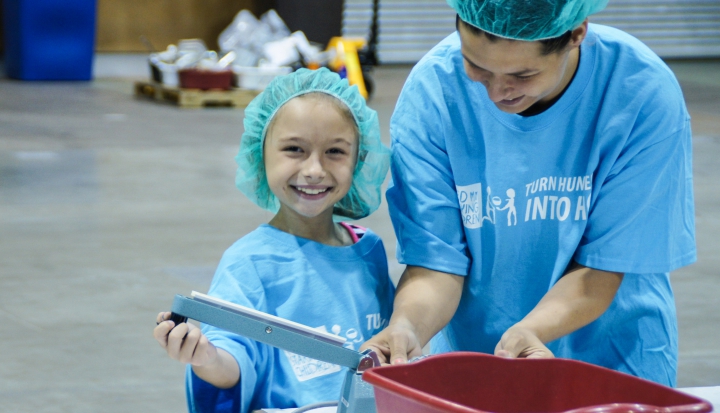On one of the first evenings after our then foster (now adopted) daughter Teenasia came to live with us, second-grade Jacob was at the dining room table doing religion homework to prepare for his upcoming First Communion. My husband, Bill, was upstairs giving 4-year-old Liam a bath, and I was holding wriggling 16-month-old Teenasia, trying to wash her hair in the kitchen sink. I found I couldn’t hold her with one arm and wash her hair with the other.
“Hey, Jacob,” I said. “Do you want to sit there and learn about your faith, or do you want to live it?”
Jacob looked up, intrigued, and put his pencil down.
“I’ll live it,” he said, smiling and walking over.
As I held Teenasia tightly so she wouldn’t bump her head on the faucet, Jacob took the spray and wet his new little sister’s hair, then added shampoo. As he worked the suds around Teenasia’s head, he looked into her eyes and narrated the process.
“You need to have clean hair. The water won’t hurt you. We’ll put a cloth over your eyes when we rinse. If you’d stop trying to get away, this would be easier,” he said.
Soon Teenasia, distracted by Jacob’s voice and interested in what he was doing, slowed her movements, smiled at Jacob, and relaxed in my arms.
Teenasia has been washing her own hair for many years, and I’m not sure Jacob, now 19, even remembers that night. But for me, the evening has come to encapsulate what I believe to be true about the connection between faith and service: We need to know when it’s time to put down the religion book and get to work. Going to church, joining a prayer group, or reading books on spirituality cannot be ends in themselves. Faith and prayer must lead to action. Yet propelling a family from a weekly hour at church to a life focused on service can feel complicated.
Here’s how some families work it:
Start when the kids are young
Families who begin service early are trying to build both a sense of compassion for others and a sense of responsibility to reach out. These families are laying the groundwork for what they hope will become a lifetime commitment to service.
“By the time our oldest was 8 and old enough to help at a meal program, our youngest was still only 2,” says LaTonya. “We knew it was important for our family to be doing some sort of service, so we’d go to the meal program and I’d put the 2-year-old in a high chair next to me while I gave out salad. My husband and I think it’s important that by the end of the primary grades, kids have a sense of the needs in the community. We’ve found that our kids seem more content with what they have than do some of our friends’ kids. I think it’s because our kids have seen what real need looks like.”
Learning service by osmosis
When parents are active in their parish or in the community, children absorb a culture of service.
“I don’t remember my parents ever asking me to help serve others,” says John, father of two. “They would just go to church and help with the coffee after Mass or with the parish festival, and they’d bring my sister and me along. I grew up thinking that this is what it means to be a member of a parish. I do the same things with our kids. I don’t choose service activities for the kids—I just bring them along to whatever I’m helping with.”
Augh! We can’t add one more thing
Commitments to work, school, sports, and activities can make parents feel there aren’t enough hours in the week for the things that they’re expected to do, much less for an optional service project. But an hour working with people whose needs are much more profound than your own family’s can help everyone gain an important perspective.
“Once a week, I take our two small children with me to a community center in our city and I tutor middle school kids,” says Elizabeth, a stay-at-home mom. Her own kids will color quietly or play a computer game while she tutors. “As I’m leaving the house, sometimes I feel like I can’t quite afford the time to do it. But once I’m there, I realize how easy my life is compared to the lives of the kids I’m tutoring. Yes, I may be helping them with math, but they’re helping me understand that some of the things I’m concerned about aren’t really that important.”
This article originally appeared in At Home with Our Faith, Claretian Publications’ family spirituality newsletter, in February 2015.













Add comment